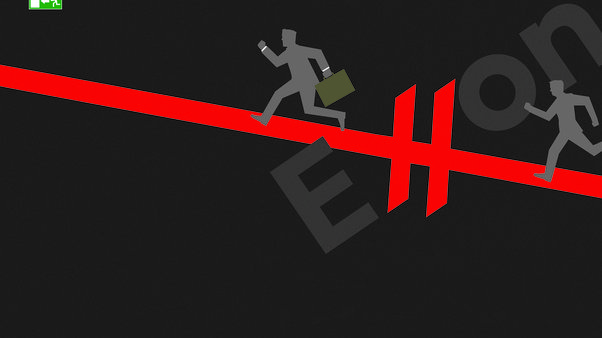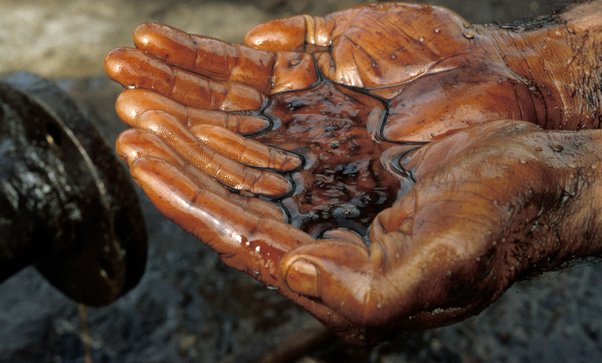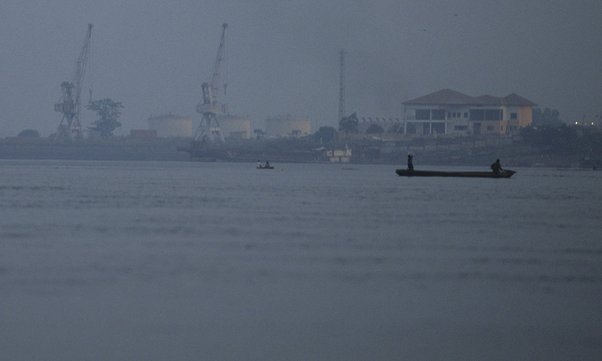We’ve been working for six years to expose the truth behind Shell and their Italian oil partner Eni’s involvement in the murky deal for Nigeria’s OPL 245 oil block. Here’s a roundup of all the developments since our explosive new revelations this week.
It’s not every day that one of the biggest companies in the world is forced into a U-turn.
But sometimes, persistence pays off - and that’s just what happened on Monday, after our explosive new report, Shell Knew, revealed that oil giant Shell took part in a vast bribery scheme that robbed the Nigerian people of over one billion dollars.
For years, Shell has claimed that it only paid the Nigerian Government in its deal for one of Africa’s most prized oil blocks, known as OPL 245, refusing to admit that it dealt with the convicted money-launderer and former Nigerian oil minister Dan Etete.
But as the story broke and spread across the world, Shell was forced to admit for the first time that it had known it was dealing with Etete all along.
Shell shifts: how the story broke
On Monday morning, the BBC’s Today Programme reported our findings– that leaked emails showed top Shell executives were told the $1.1bn Shell was paying for the oil block would likely be used in paying off top Nigerian politicians.
The story ran throughout the day, picked up by news outlets across the world. Our video explainer was watched tens of thousands of times, and shared by thousands. The story began to trend on Twitter in Nigeria.
Leaked emails increase pressure on @Shell over #OPL245 Nigerian oil deal https://t.co/LSgo9ZrKVo via @FinancialTimes #Shellknew
— Global Witness (@Global_Witness) April 10, 2017
Recording puts Shell’s Nigerian oil deal under a harsh light. Great piece in today's @nytimes, citing our new report https://t.co/dyBIQ99s74
— Global Witness (@Global_Witness) April 10, 2017
By the time we appeared on the BBC’s 10 o’clock news, we’d received an astonishing piece of news. In a huge U-turn, Shell had finally admitted that it had known that money was flowing to Etete in its dealings to obtain the block – something it refused to admit over the six years we’ve been investigating the deal.
Over time, it became clear to us that Etete was involved in Malabu and that the only way to resolve the impasse through a negotiated settlement was to engage with Etete and Malabu, whether we liked it or not
Huge U-turn that reveals Shell’s duplicity as company admits it dealt with money launderer https://t.co/RLCcrWvobb #Shellknew pic.twitter.com/qlSdzYaDPq
— Global Witness (@Global_Witness) April 11, 2017
This admission starts to show just how much Shell knew about this shady scheme – and that despite this, they went ahead anyway with a deal that deprived the Nigerian people of cash that could have funded schools and hospitals but instead flowed to private hands.
AGMs imminent
Shell’s admission is a step forward in finally bringing the details of this murky deal out into the open. But there’s still a long way to go in holding companies and executives to account. With Shell’s annual shareholder meeting coming up on 25th May, executives must answer difficult questions about the risks the company has opened itself up to, what exactly they knew about the deal and how they will ensure that such a deal never happens again. Millions of people have their pensions invested in Shell and they deserve answers.
When Shell’s partners in the deal, Italian oil company Eni, meet for their Annual General Meeting today in Rome, they too will need to explain to shareholders their role in the deal. Now that Shell has broken ranks, the pressure is on Eni’s senior executives to come clean on their role.
By exposing the truth, we can help stop oil companies making deals like this that rob countries and their citizens of what’s rightfully theirs. Help us expose the story.


